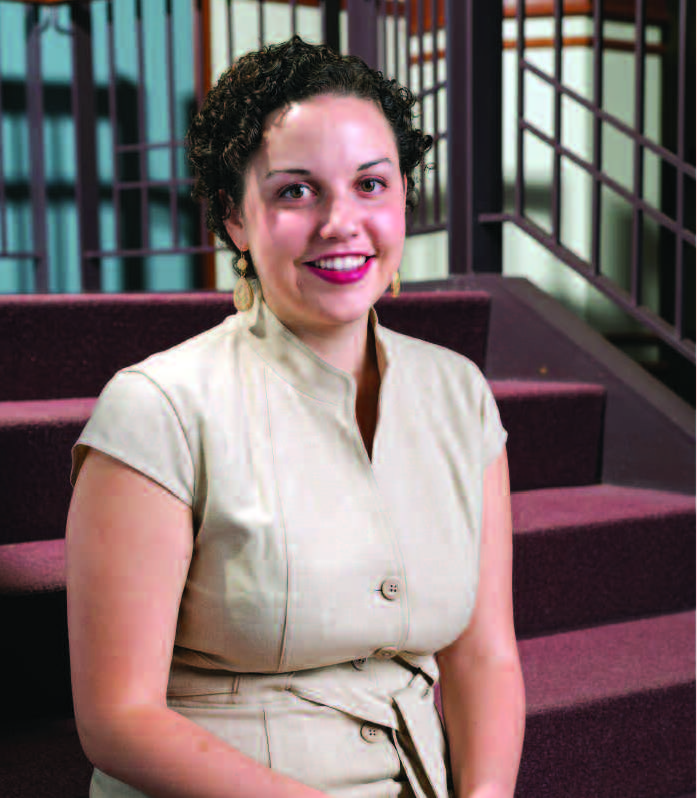 For her first law school summer, Annie Simunek pursued an
even greater challenge—a new legal system.
For her first law school summer, Annie Simunek pursued an
even greater challenge—a new legal system.
Simunek spent the summer in India, interning with the International
Justice Mission (IJM). The human rights organization works in 20 communities
around the world, partnering with local justice systems to help victims of
violence. Highly selective, IJM accepted just 13 of more than 400 applicants to
its 10-week summer internship program.
In college, Simunek worked with Indian families in the U.S.
and abroad, teaching and working at children’s homes in South and North India.
She studied theology and international studies online through Ecclesia College,
originally based in Arkansas. Inspired to volunteer, she chose to work for a
year and a half in India because of its high population of orphans and street children. At
DePaul Law, she gravitated toward the International Human Rights Law Institute
(IHRLI) and received guidance from Executive Director Elisabeth Ward. She also
began working with Schiller DuCanto & Fleck Family Law Center Executive Director
Cheryl Price and Center for Public Interest Law Executive Director Shaye
Loughlin.
“I started leaning toward public interest law near the end of
my last spring semester and just wanted the summer to determine if that was the
best direction for me,” Simunek said. She was honored with a Child and Family Law
Fellowship and an International Human Rights Law Fellowship, both of which
fully sponsored her work in India this summer.
Simunek said she identified and chose IJM for their
antihuman trafficking mission as well as their distinctive Justice System
Transformation Model. “Essentially, they aim to work themselves out of a job so
that the local government will adopt the process,” she explained. “And they’re
seeing that happen in communities such as Cambodia.” Training began at IJM’s Washington, D.C., home office the
first week of June. Simunek, who knows some Hindi, braved a heat index of 130
degrees her first week in India. At the IJM office, she provided direct support
to the head of legal and staff attorneys in researching and supporting trial
briefs as well as assisting with training programs for field workers in
relieving victims of sex trafficking and bringing perpetrators to justice.
Simunek said she was struck by the differences in the legal
systems of the United States and India and how injustice manifests itself in
both countries, yet in opposite ways. “Often the United States is quick to prosecute and hand
out long prison sentences for smaller offenses. In India, it was often very
difficult to get convictions. Convictions could take up to 10 to 15 years and,
even then, those convicted may apply for bail at any time.”
She explained that her experience in India allowed her to
view U.S. current events through a new lens. “My work overseas really gave me
time to see human rights issues here in the U.S. I came back from India at the
end of the summer inspired to face legal issues here and to aim to enact policy
changes and system reform in my home country.”
Simunek plans to pursue criminal law and juvenile defense
litigation or public interest clinical work, working with clients who cannot
afford representation and continuing her focus on anti-human trafficking.
“One of the things I like about DePaul is that a lot of my professors
are adjuncts,” she said. She cites Cook County Public Defender Richard Hutt and
Jay Readey, executivedirector at Chicago Lawyers Committee for Civil Rights Under
Law, as examples.
“They’re working in the places I’m interested in. They have
really valuable real-world experience that they bring to class.” For the time
being, Simunek is bolstering her commitment to justice on a local level with an
externship at the Chicago Legal Clinic’s Pilsen office, providing community-based legal services
to the underserved and disadvantaged in the Chicago area.